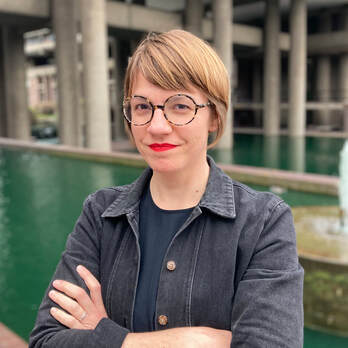
The York Centre for Asian Research (YCAR) is launching a new lecture series, titled “Climate Dystopias in Asia,” set to begin Nov. 22 and explore the relationship between climate change challenge and societal impact throughout Asia.
The “Climate Dystopias in Asia” series will feature scholars presenting their research and findings on the complex relationship between environmental shifts and societal impacts in Asia, focusing on the various adaptations that communities and organizations are undertaking in response to these challenges.
“Asia, as we know, is warming faster than the global average. It increasingly faces extreme weather events like floods, droughts and heat waves that significantly impact lives and livelihoods. To put the spotlight on climate challenges that cities, coasts and hinterlands face in different parts of Asia, we will invite scholars from interdisciplinary backgrounds to offer grounded analyses of the complexities and limitations of climate adaptation strategies,” says Professor Shubhra Gururani, the director of YCAR.

The inaugural lecture of the series will feature Professor Kasia Paprocki from the Department of Geography & Environment at the London School of Economics & Political Science. The in-person talk, titled “Threatening Dystopias: Development, Scientific Knowledge and Adaptation to Climate Change,” will draw on Paprocki’s book, also named Threatening Dystopias, that examines the politics of climate change adaptation in Bangladesh.
By situating climate change in a longer history of growth and development, Paprocki will explore the oversimplified crisis narratives that define Bangladesh’s approach towards climate change. In global climate change policy and media circles, Bangladesh is the poster child for climate disasters related to rising sea levels and is often portrayed as “the world’s most vulnerable country to climate change.” Paprocki will critically evaluate these narratives and offer an analysis that digs deeper and shows how the prevailing storyline may overlook the political and economic forces that contour Bangladesh's climate geography.
The talk will draw on Paprocki’s research and publications' focus on climate change adaptation in South Asia, specifically in Bangladesh. Forging a conversation between political ecology, agrarian studies, climate change and risk narratives, Paprocki will examine the narrative of climate change as it circulates in Bangladesh and situate the responses to climatic change in the deeper histories of colonial policies and agrarian politics of land and underdevelopment.
“With this event and the series more generally, we hope to offer a platform for a deeper understanding of the nuanced interactions between environmental challenges and societal change in Asia,” says Gururani.
Read more about the speaker here at kasiapaprocki.com.
More information about the series can be accessed here.
